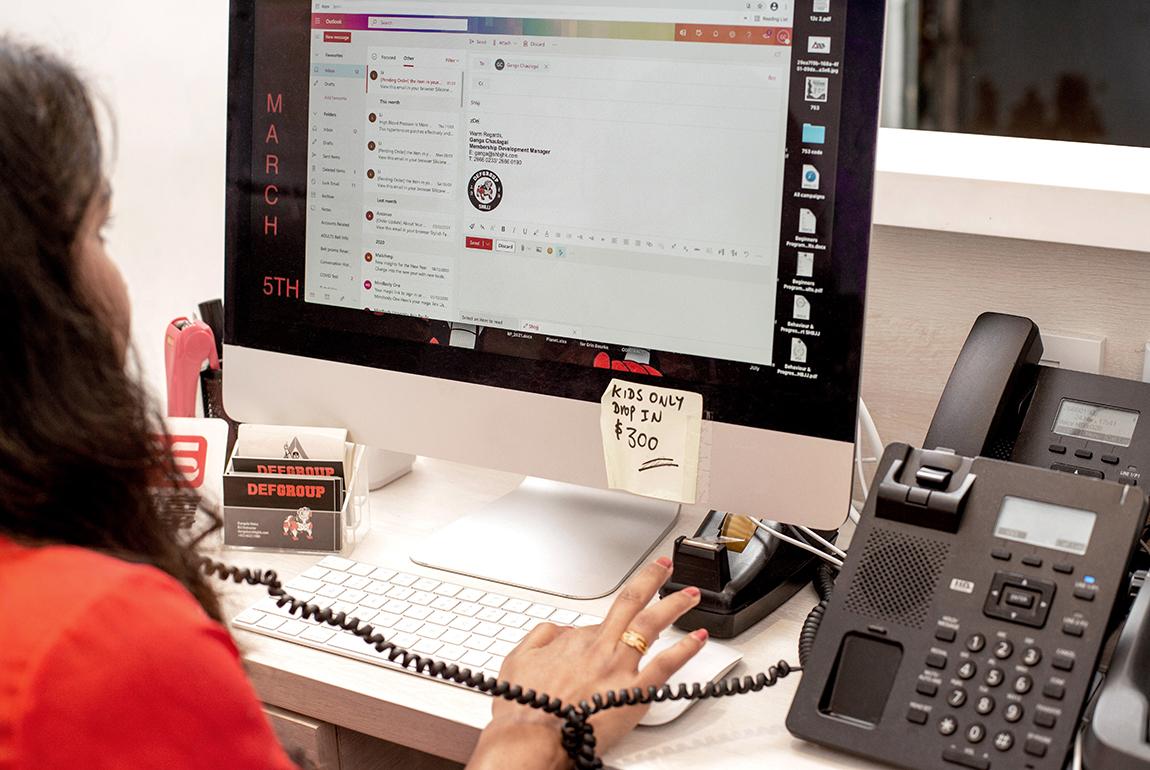In March 2020, when the coronavirus pandemic prompted a nationwide mandate requiring all nonessential businesses to close, business survival became a key challenge for hundreds and thousands of small companies across India.
While many were forced to shut shop, some stayed afloat thanks to their amazing determination, willingness to adapt and perhaps some bit of luck.
"It is not the strongest of the species that survive, nor the most intelligent, but the one more responsive to change." ~ Charles Darwin
For businesses that survived and grew during the pandemic, one thing was certain. Their owners were always on their toes, using innovative strategies to make sales and drive new opportunities, which they believe can help them now and in the future. Most importantly, these businesses were all responsive to change.
Looking for light amidst darkness
A survey of 400 firms conducted (pdf) in mid-2020 found that India’s microenterprises lost 20% of annual sales, while medium and large enterprises lost about 11%.
The study estimated that microenterprises could retain only 37% of their workers, while the number for large enterprises was 57%. These and other statistics suggest the ill-fated plight of small business owners during the crisis.

Aarushi, founder and director of Lavish, a handmade apparel and accessories brand, witnessed how her business almost came to a halt during the pandemic.
“While online selling through platforms like Amazon and LimeRoad.com was always part of the company’s strategy (and Lavish also has a well-built website), the pandemic days were tough. Our ongoing orders were on hold for an indefinite period,” she says.
Aarushi was worried about her local artisans, as payments did not happen in time and the delay was almost for six to eight months.
But the Economics graduate, who is always too determined towards her goal, didn’t give up.
1. Honesty is best
“We are all in this together,” Aarushi adds, “so the ideal way I thought was to stay transparent with my clients, partners and employees about what the business was going through.

“We explained the situation to our clients, citing the challenges regarding our overheads, and payments to be made for labor and raw material.”
“It was understandable that it might be difficult to pay out your workers, suppliers and other stakeholders during the lockdown. However, it is helpful to give your vendors, suppliers, landlords’ etc. sufficient notice in case there is going to be any delay in payments so that they can also be prepared and there is no bitterness in this already difficult time,” she explains.
Lavish eventually prevailed over the crisis in the ensuing months, as efforts on both ends resulted in timely payments that continue even today.
“I would like to emphasize that our clients are wonderfully receptive and understanding, which has resulted in swifter business. Likewise, I realized, workers can empathize with owners facing a crisis, as long as the communication is transparent,” she says.
Related: Lavish makes looking fashionable feel good
2. Attract a global following
Varun Kumar, Founder and CEO of Pashmina, says that his company ended up selling more during the pandemic than ever.
Pashmina is committed to preserving and selling the traditional artisanal craft of Kashmir.
“The reason for that has been our focus on the global markets since our inception. Hence when COVID hit the likes of the U.S, the U.K, Japan and Europe, people out there were so tired of being at home that the only stress buster was online shopping,” says the business and marketing professional. Varun has worked relentlessly to keep the lost glory of Pashmina alive and take the royal art to the world.

However, Varun did face challenges with logistics and supply chain. “The biggest problem we faced was regarding logistics — primarily to be able to move products from Location A to Location B and finally shipping them internationally,” he says.
Like Aarushi, Varun also believes in the power of communication during such difficult times.
“With proper planning and communication, we were able to convince our customers that orders will be processed despite the delay owing to the current crisis. In the process, we were able to not just retain those orders but build an even stronger personal relationship with those customers,” asserts Varun.
Related: Pashmina gives back to the trained craftsmen of Kashmir
3. Use automation to your benefit
Varun highlights the use of automation tools as a key business survival strategy that enabled the company to maintain a strong connection with customers.
Varun says, “The communication — being a core solution to all issues we faced — was managed by integrating our website with Zoho CRM tohave a single cumulating of all communication contacts with customers.
“We shifted from performance marketing to building a marketing strategy focused towards content.”
“We built more than 100 articles during that period to give a lot of content to read and engage the customers or people visiting our website with. Eventually those 100 articles became our organic customer acquisition point, as 40% of our traffic is driven through these content pages,” he adds.

Varun also lauds the Indian government’s special initiatives towards e-commerce shipments. He mentions that once things stabilized a little, the custom clearance ensured that there were no delays.
4. Put your business online
Praveen Dilip S, Managing Director and Chief Technology Officer of RepuNEXT, a digital marketing agency, believes that his business got a boost during the pandemic, which came across as a blessing in disguise for them.
He says, “Though it’s uncomfortable to talk about success during the pandemic, our business was mildly affected.

"As a digital marketing agency, most of our work was done online. It required limited physical presence and hence employees started working from home.”
However, as everyone was struggling with lockdown blues, it was a struggle to get new business.
“A few weeks into the lockdown, we started coping with the situation. We made use of the internet through which we held virtual meetings, and spent more time sharing materials and contacting clients,” he says.
We focused more on digital marketing and closed several deals.

“It is essential to have a strong online presence in order to stay afloat. Other than unavoidable appointments, everything else could be conducted online,” says Praveen.
For business survival during the pandemic and in the current scenario, his recommendation for small businesses is to switch to digital tools and technologies that can play a big role in business survival.
Online chat
“We use an advanced online chat where we don't need to meet physically," he explains. "It helps us to do video calls, chats, file transfer and screen sharing all from a website without any installation. This kind of tool is simple even for a layman to access the meeting at any time without any hurdles.”
QR Codes
With social distancing has now become a norm, he also mentions that UPI and QR codes are the best ways to maintain a social distancing as we can expect another lockdown in any time.
Praveen also says that he made sure to advertise under a limited budget — even though returns would be low and that they need to invest cautiously. “Most importantly, by constantly communicating through the online medium we could survive fairly well in the new climate,” says Praveen.
Editor’s note: No business website? Now is the time to get one. Find a GoDaddy-certified web developer to build it here by scrolling down to “Companies looking for certified GoDaddy professionals?”
5. Think like a big company
As the pandemic forced many small businesses to move online, Varun suggests, “When you sell online, just do not think about a colony, a city or a state to be your market. It can be the whole world. Selling to New Zealand, the US, and Europe could have been unthinkable otherwise, but online has made it possible.”
His suggestion to small business owners is to build their website infrastructure that can manage the global payment gateways and also have in place:
- Sound logistics tie ups
- Return policy
- Privacy policy
- Terms and conditions
Varun also believes that the need to focus on the business aspiration towards a niche is equally important.
“The more specific you are on the product or the service, you will be able to convey your story more effectively, build on the content, choose the right marketing platform and spend the right budget on marketing,” he says.
Business survival is all about attitude
“One should keep in mind that online business is brutal to say the least in today’s world," notes Varun. “There will be a lot of struggle, lots of pain, expensive mistakes — but never give up. A lot of passion and commitment is needed for business survival, especially in difficult times.”
Small business owners who are struggling to stay open or preparing to reopen should understand and use every possible opportunity that comes their way.
Endure. Persevere. Adapt. Pivot.
These are the key mantras of business survival, especially during a crisis situation. The silver lining is, if you win the support and trust of your customers and workers, you’ve already survived and won the race






